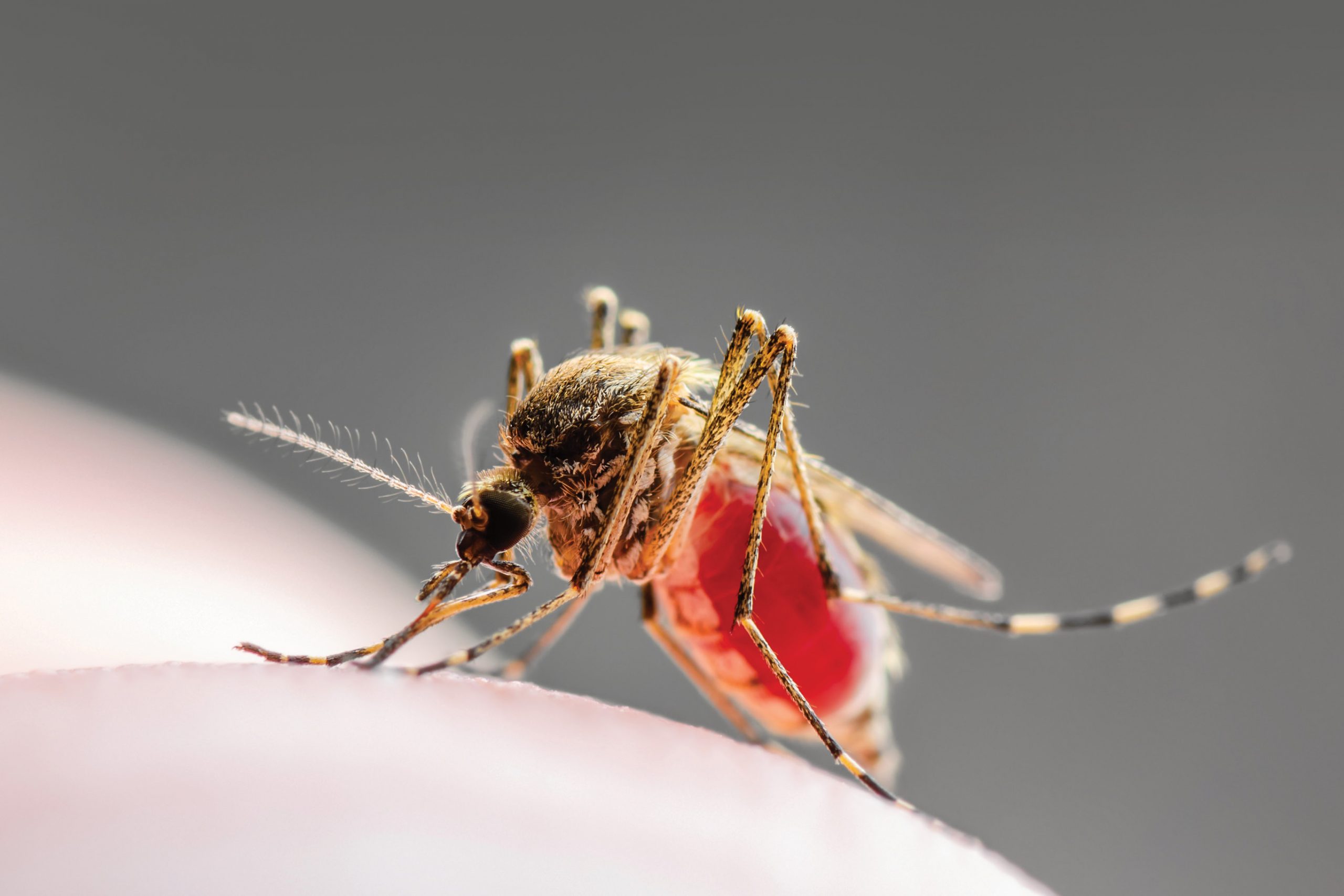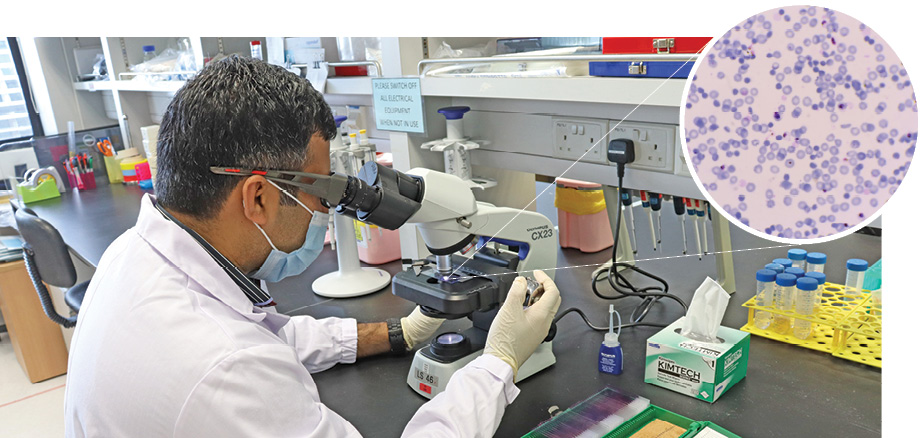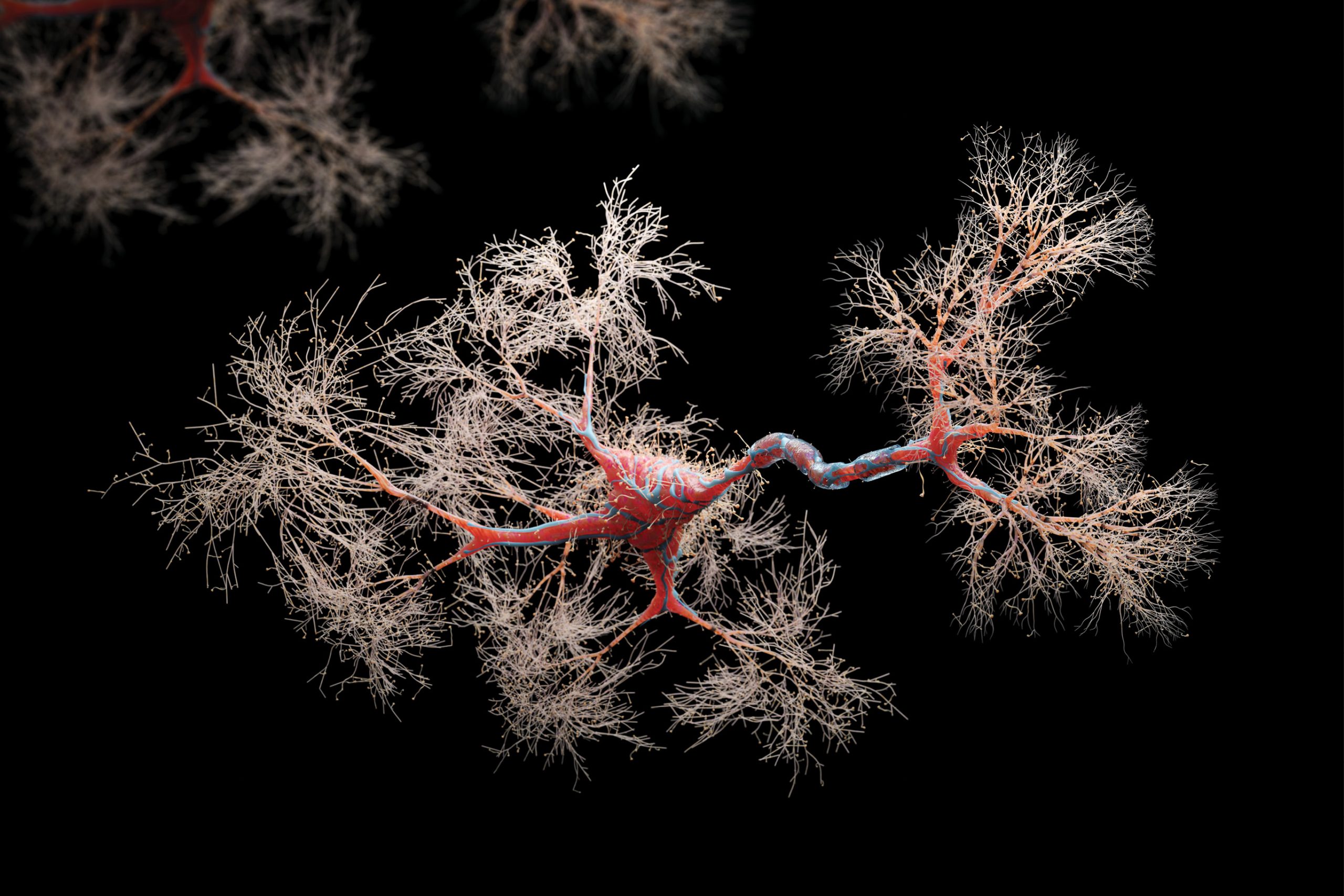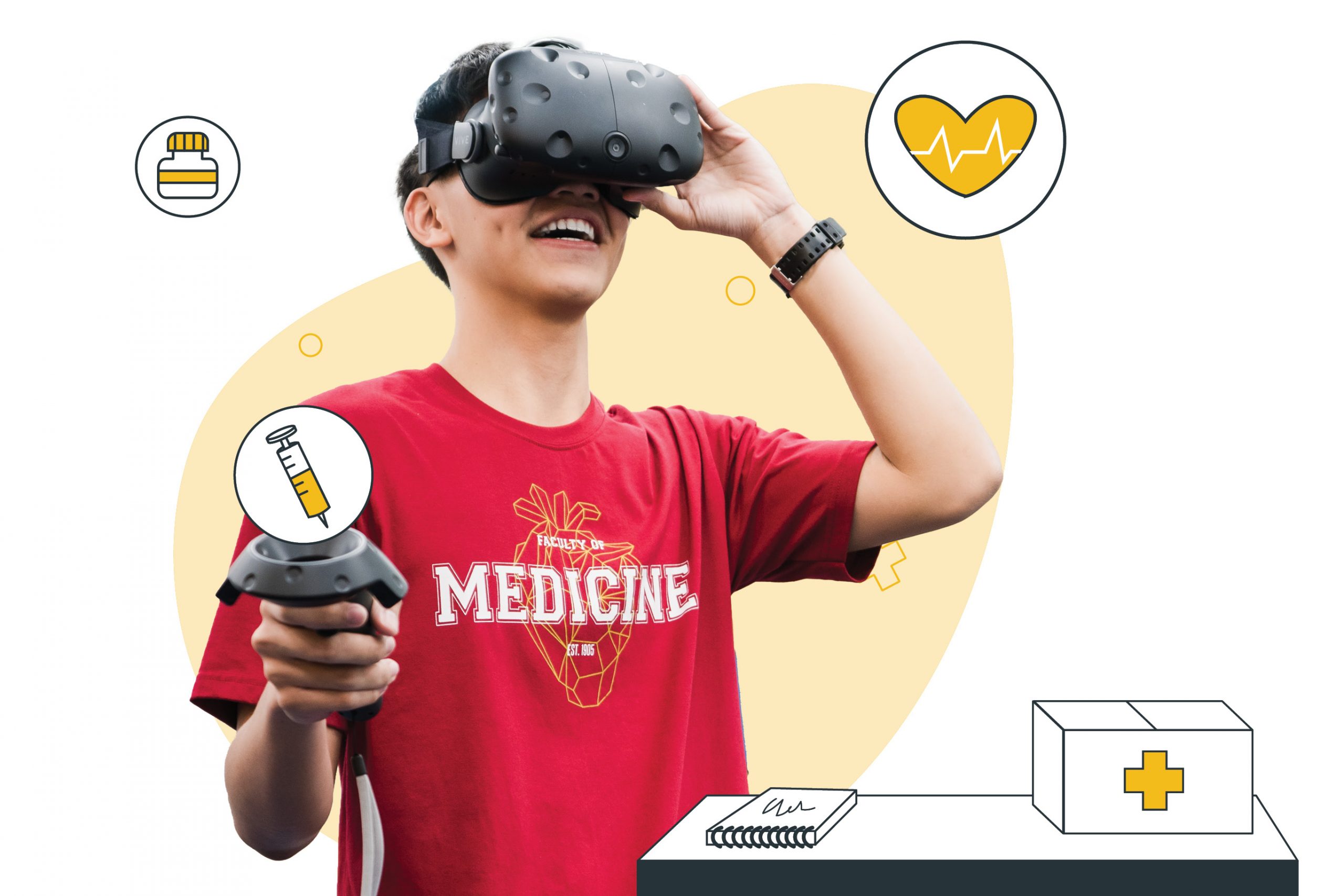
Issue 39 / August 2021
IN VIVO
All the Buzz and Bites of Malaria

In April 2021, the Department of Microbiology and Immunology at NUS Medicine was abuzz with anticipation and activity, as researchers, staff and students came together to mark World Malaria Day.
he idea of having a department-organised initiative to highlight the complex issues surrounding malaria was first put forward by Dr Ch’ng Junhong, a lecturer from the department. He explained, “Malaria is an infectious disease that is still endemic in many countries today, and we believe that commemorating World Malaria Day offers us an opportunity to look beyond the biology of the disease, which is typically what is emphasised in the School, to the interdisciplinary issues that underpin real world progress.”
As part of the initiative,
Dr Rajesh Chandramohanadas, a senior lecturer from the department, led a team in organising an on-site event which comprised a series of short, live seminars by researchers from NUS Medicine, pre-recorded talks by international guest speakers, games and activities, as well as a showcase of malaria-related exhibits and photographs.
Did you know?
World Malaria Day
is on 25 April
Discussing the history of malaria in Singapore, the situation in countries plagued by the disease, elimination efforts and vaccine development across the world, the outreach shed light on current research surrounding malaria, and why the disease is still relevant to Singapore.
“Malaria is an infectious disease that is still endemic in many countries today, and we believe that commemorating World Malaria Day offers us an opportunity to look beyond the biology of the disease, which is typically what is emphasised in the School, to the interdisciplinary issues that underpin real world progress.”
Dr Ch’ng Junhong
“Although Singapore was declared malaria-free by the World Health Organization in 1982, the nation remains surrounded by countries vulnerable to the disease. We play an important role in the global fight against the debilitating disease, and it is my hope that our outreach can help explain how we are contributing towards that,” shared Dr Rajesh Chandramohanadas.

Dr Rajesh Chandramohanadas observing malaria-infected blood cells under a microscope.
In circle: Microscopic view of malaria-infected blood cells (visible as blue dots) among human red blood cells (stained light purple).
To inspire conversations on malaria, the department also carried out a virtual walkathon to raise awareness of malaria relief efforts across the globe, and put together an extensive series of malaria-related content on social media. Led by Dr Ch’ng, the department’s social media team introduced the biology and on-the-ground context of the disease through bite-sized information and interesting trivia on malaria and the global research work.
Associate Professor Kevin Tan, who heads the department, added, “It is important to recognise that the war against malaria is not yet over. We hope that through our team’s outreach efforts, we have helped the larger audience see the need for continued investment and commitment for malaria prevention. We believe the initiative has also offered our students insight on what education entails—that beyond achieving good grades, there is very significant and real impact on what is taking place globally, in terms of the political, geographical and demographical aspects of infectious diseases.”




